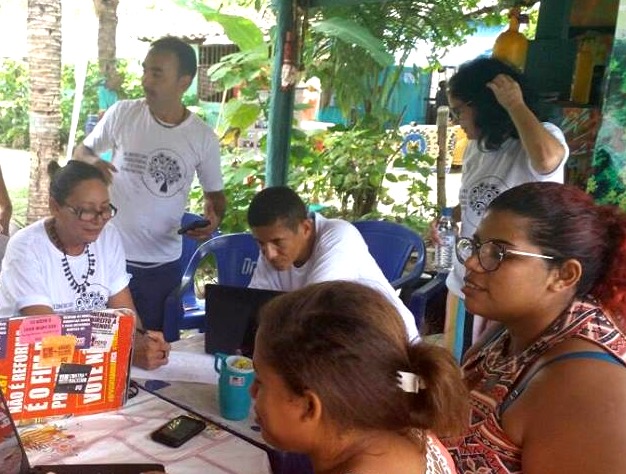
Design as a practice of freedom is an approach that considers that all people project themselves into the world seeking to increase their freedom of action. As a pedagogy, it is a proposal to raise awareness of the world as a result of intentional human projects, which can be questioned and transformed. As a technique, it is a process of critical appropriation of technologies for liberating purposes. Previous research has shown that this type of practice is common in self-managed organizations, which adopt generalist, egalitarian, democratic, and solidarity-based management principles. This research project aims to describe and analyze the digital traces left by self-managed organizations on the Coral Platform between the years 2011 and 2021. The data collected will be analyzed and the practices of freedom will be reconstructed. This project expects to elucidate how the principles of self-management are defined and how they give rise to design practices that aim to expand the freedom of self-managed organizations.
Contextualization
The spread of neoliberal ideology has encouraged the State to decrease its participation in productive activities in favor of private companies and Civil Society Organizations (CSOs). Besides these formal organizations, there are several other types of informal organizations that fill the vacuum left by the state, such as collectives, groups, and associations. These organizations are usually formed to solve occasional problems on a temporary basis and, due to their emergent and circumstantial character, they do not derive from rigid power structures. In contrast to the top-down management logic of the state, these informal organizations usually adopt a bottom-up management logic, the so-called self-management.
Self-management is studied in several fields of knowledge. Studies conducted in Administration reveal that there are principles in common in self-management: generalism (everyone does everything), egalitarianism (everyone has the same duties and rights), democratic (everyone can participate in decisions), and solidarity (everyone wants to help each other mutually). These principles give rise to several organizational practices, such as task rotation, participative research, cooperativism, and conversation wheels, among many others. A little-studied practice of self-management is design.
Design can be understood as both a typically modern professional practice and an ancestral practice of exercising the human faculty of projecting oneself into the world. In the case of self-managed organizations, design as a professional practice rarely appears, because there is no interest or resources to hire it since it is inserted in a market of specialized services. Problems that could have professional attention end up being solved by members of the organization itself who make use of their innate faculty of design. Amateur-trained design skills do not produce the same results as professionally trained design skills. On the one hand, amateur results seem technically less developed, on the other hand, they adhere better to the organization’s needs, desires, and cultural characteristics than professional results.
There are approaches such as design for development, design for territory, and design for social innovation that introduce professional practices in self-managed organizations aiming to replace or expand amateur design practices. However, these approaches often end up ignoring the organization’s world knowledge and imposing values, aesthetic standards, and functionalities that diminish the freedom of the organization’s members. Instead of liberating, professional design practices in this context can further oppress people who have already been oppressed historically and have formed a self-managed organization for this very reason. Because of knowing this oppressive aspect of professional design, many self-managed organizations have no interest in developing their design practices. It is, therefore, necessary to study design as a practice of freedom and distinguish it from design as a practice of oppression in order to open paths for an autonomous, situated, and ethical development of Design Studies.
Fact sheet
- Undergraduate research project from UTFPR (2021-2023)
- 4 students involved so far
- 1 scholarship